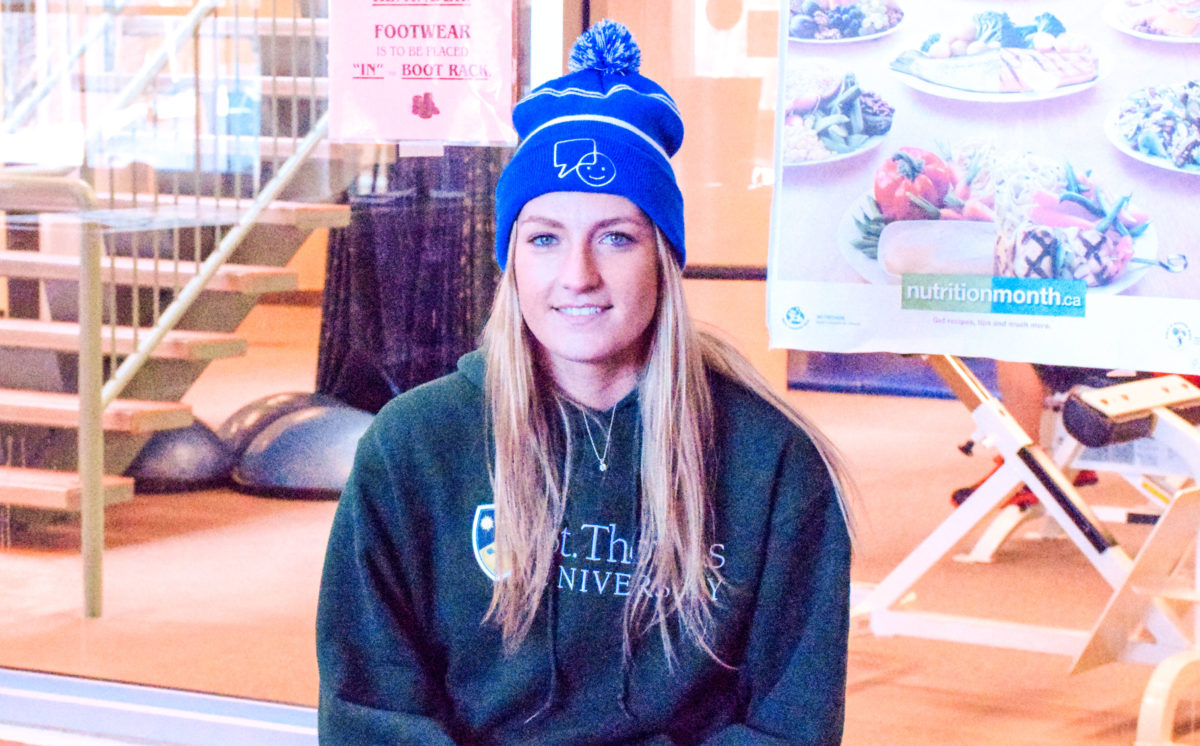
After struggling with her mental health, St. Thomas University student and athlete Taylor Cook is hoping to help others with her new blog, The Mental Game.
“I just want to help,” she said.
“I’ve gotten so much positive feedback from people I know and people I don’t know about how good it is to read something from someone that they know or someone that’s so open and transparent.”
Cook, a fifth-year hockey player at STU, started struggling with depression two years ago after her grandmother passed away.
“When my grandmother passed away it really hit home for me because she lived with us,” said Cook.
“It just gradually became harder and harder for me to want to be at the rink or for me to want to go to school and stuff.”
During the summer, she began to struggle again with depression and anxiety.
“Even prior to the summer, there is still like, some pre-effects of it happening and showing up in my game. So, I wasn’t really performing the way I expected myself to.”

Cook hopes her blog will help people recognize their symptoms and find resources. She said she wants to eventually make it more sports-oriented. So far, she has received a lot of positive feedback from other students and people outside New Brunswick.
“I’ve had [a good] reception from people in other provinces that I didn’t expect that I would hear anything from. Or even people that are on campus that I don’t necessarily associate with all the time, reaching out and saying that it’s so comforting to see someone be so open and honest about things that they’ve experienced and let other people know that it’s OK to feel that way,” said Cook.
“It’s sad to say, but it’s like almost normal. And I think it’s just hard for a lot of people to realize that.”
Cook said social media plays a big part in the perception of mental health. She said when people are only seeing happy or positive posts, they begin to question why their own lives aren’t positive.
Cook began helping and supporting her friends with their struggles when she was younger. Her father was diagnosed with bipolar disorder when he was 18. Growing up, Cook learned what can happen if people don’t take care of their mental health.
“So, growing up I’ve always been accustomed to being around people that were affected by mental health disorders … You see how much it really affects their life if they don’t handle it well or if they don’t know how to handle it,” Cook said.

“My friends growing up and in hockey were the ones that I always kind of gravitated toward, [they] were always the ones that needed some help. And I always found myself in the position of being that person that needed to be a crutch almost and help them out.”
While publishing can be nerve-wracking, Cook is hoping what she talks about and the resources she mentions will help people. She said she’ll also try to mention other resources that may not have worked for her but might work for others.
“I’m just sharing my experiences and what has and hasn’t worked for me. Every athlete is different. I find meditation and being mindful is extremely helpful for me. But some people just can’t do that. And they can’t train their minds to just stop talking.”
Cook said making time to do things she enjoys and exercising helps her. She said that sometimes people need to be a bit selfish and make time for themselves.
“I can’t do everything for everyone not every single day of the week. You’ve got to have downtime, so I like to read, or I do a lot of journaling,” said Cook.
She said her suggestion for anyone who is struggling or thinks they may be struggling is to ask for help and find someone to talk to, whether it’s a counsellor or someone close.
“Some people are like, ‘I want to talk to my best friend about this or my mom.’ I talk to my mom every single day. She’s great,” said Cook.
“Definitely just ask for help even if you’re uncomfortable with it. Just kind of reach outside your comfort zone for the five seconds that it takes to say, ‘Hey, I need some help.’”
